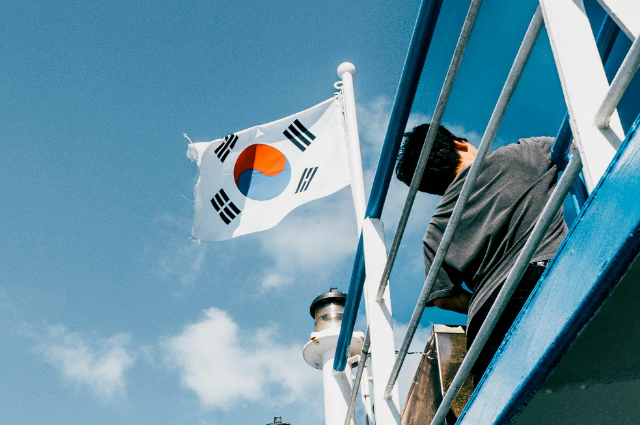
In a surprising shift, relations that once seemed improbable are now being formally established. We can see that there were many instances in history where diplomatic relations were never established for a long time, but suddenly, they were being built. Back in 1972, when the Cold War was in full force, the US had had no diplomatic relations with the People’s Republic of China since the communist revolution in 1949. However, President Nixon’s visit to China led to the fostering of formal diplomatic ties in 1979. The same with the case of Israel and the United Arab Emirates (UAE). Before this UAE never officially recognised Israel since its formation in 1948. Since the consecration of the Abraham Accords, the UAE and Israel have normalized their relations in 2020, which was also the first such agreement between Israel and a West Asian country. Now, one such notable case is the establishment of relations between South Korea and Syria on 10th April 2025. The foreign ministers of Syria and South Korea, Mr. Asaad Al-Shaibani and Mr. Cho Tae-Yul, signed an agreement, which would initiate friendship and cooperation between the two countries, as well as opening of embassies and exchange of diplomatic missions would facilitate their bond. Syria said it wants to improve its image in the world, which was destroyed by Bashar Al Assad’s regime. The Ministry of Foreign Affairs of South Korea said, “this development opens a new chapter of cooperation with Syria, whose bilateral relations with South Korea had been severed due to its close ties with North Korea”.
South Korea has formal diplomatic relations with every member country of the UN, except for one, which is North Korea. The two Koreas are experiencing their worst phases in years, with Kim Jong Un continuing to showcase nuclear weapons and send support to Russia in its war against Ukraine. North Korea hasn’t responded to South Korea’s move with Syria. Earlier, South Korea formed ties with Cuba in a move that, according to Seoul, would put pressure on North Korea. This is because North Korea relies heavily on a small group of old allies during the Cold War times for international support. For much of the past decade, Syria remained diplomatically aloof due to its brutal civil war, caused by the authoritarian ruler Bashar Al-Asad, and the international sanctions imposed by the Western nations. Assad’s regime was marked by widespread human rights violations, which was the key factor why many countries, including South Korea, were hesitant or were cautious to make a move. But that position has shifted drastically in recent months. South Korea and Syria formed diplomatic ties after months of discussions that began in February and were later approved by South Korea’s cabinet, according to the Yonhap news agency. On March 30, after the removal of Assad’s regime from power, a new transitional government took office, led by President Al-Sharaa, a former opposition leader. Meanwhile, South Korea was going through its period of instability. Meanwhile, South Korea is going through its period of instability, where President Yoon Suk-Yeol was formally impeached last week after declaring martial law in December. This cited alleged infiltration by North Korean and “anti-state” forces. These domestic shifts in both countries paved the way for a previously unlikely diplomatic relationship.
Now that South Korea and Syria have officially forged diplomatic ties, both countries are expected to begin working together on a range of areas, including business, cultural exchange, and security exchange. Experts believe that this step could open new doors for South Korean companies to invest in Syria, especially in rebuilding infrastructure, modernizing communication networks, and improving technology. However, one needs to keep an eye on South Korea, which will they be following the same tradition of Western countries in imposing their companies and markets on Syria, and in turn would violate their resources under the guise of development. This could be a major blow for Syria, which is still recovering from years of wars and volatility. At the same time, South Korean firms might benefit by entering a new market, which would help in long-term growth potential. But there is also cultural cooperation, such as student exchange programs, Korean institutes, or Syrian cultural festivals that would help build stronger people-to-people connections and mutual understanding between them. In terms of security, both sides may discuss ways for counter-terrorism, border control, and post-war stabilisation. This regional cooperation could improve regional safety and help Syria regain stability. Additionally, this diplomatic shift could impact larger geopolitical dynamics, especially in how alliances could change and how global powers would respond to the rebuilding of post-conflict countries. This new relationship could also help other countries in the Middle East and beyond Syria. It also signals that South Korea wants to play an active role in peacebuilding and global diplomacy.
The establishment of diplomatic relations between South Korea and Syria marks more than a formal handshake. It reflects a moment of recalibration emerging from political crisis and seeking new directions. For South Korea, this could signal a broader shift toward a more independent and diversified foreign policy. For Syria, it represents a step toward diplomatic normalization after years of isolation. However, this new relationship also comes with risks. International scrutiny, unresolved international tensions, and the fragility of both nations' political transitions raise important questions about the long-term viability of such an alliance. As the partnership develops, the world watches closely, as the coming months will bring a real change, not just for South Korea and Syria, but for the broader region and the international community. In increasingly complex international relations, this unexpected partnership may either fade away or serve as a turning point as mid-sized powers navigate a changing world order. South Korea’s move might encourage other nations to reassess their diplomatic stance and possibly re-engage with Syria in the future. It would also benefit India from India staying open to reassessing ties with countries it had limited or strained relations with.
